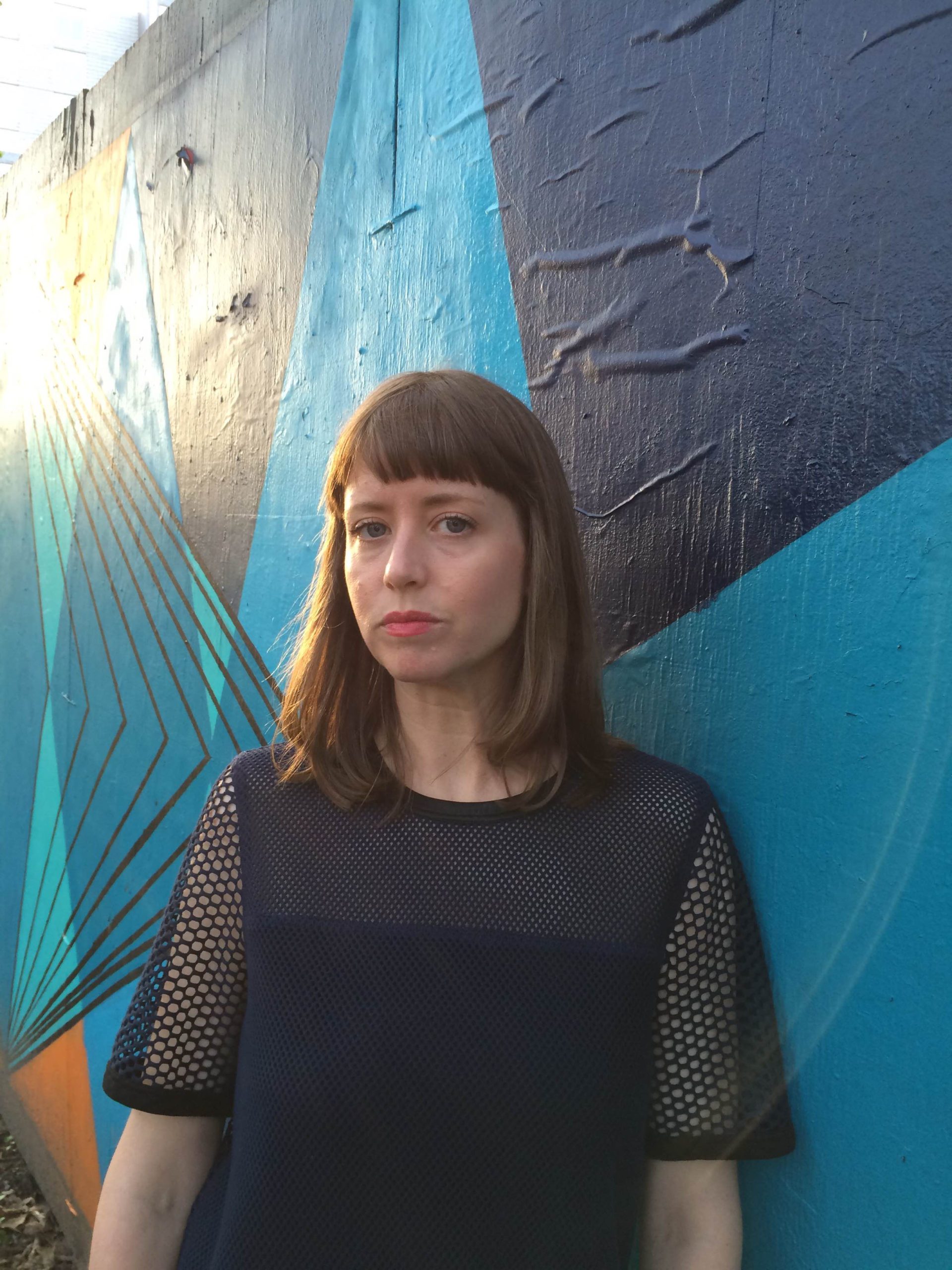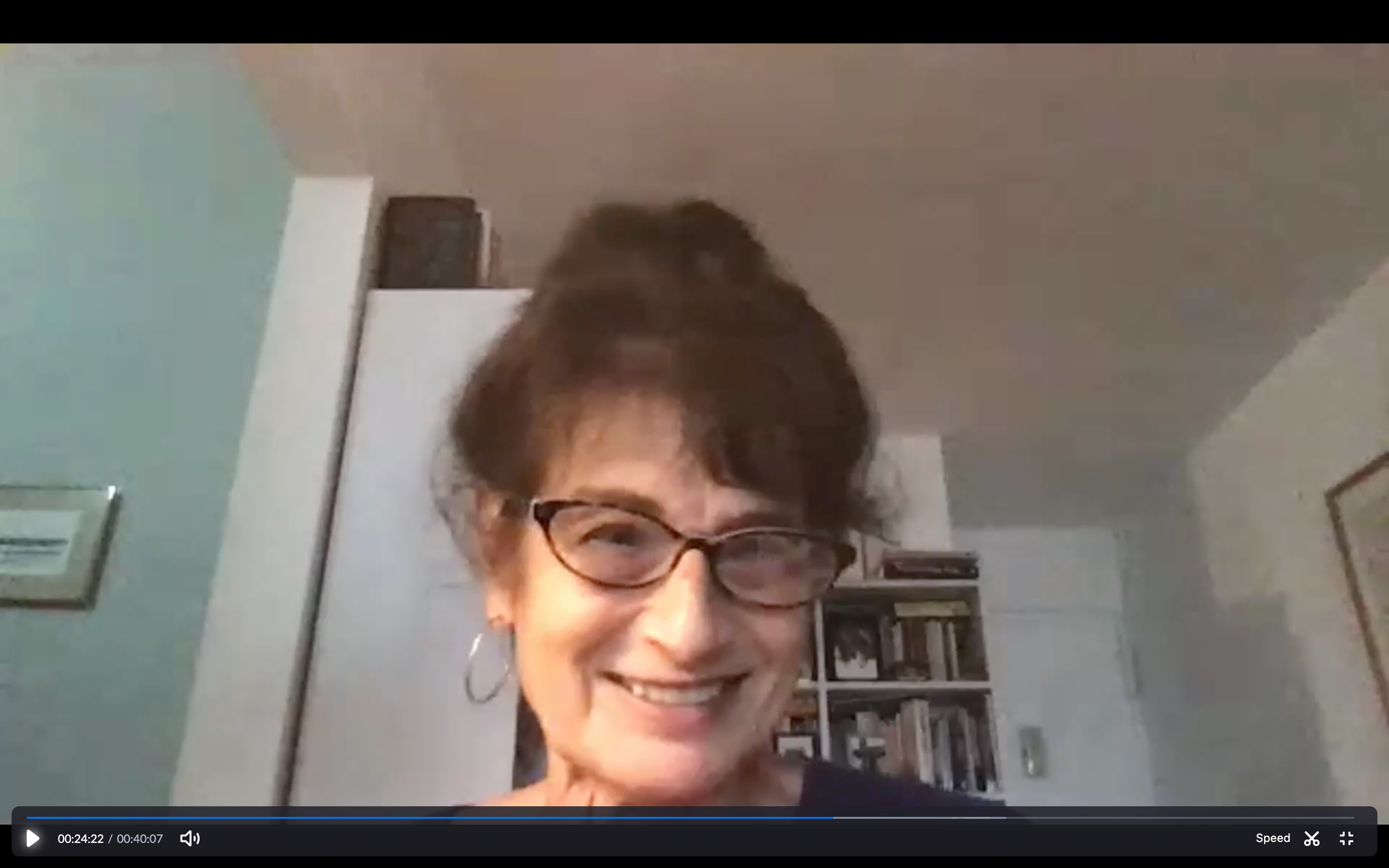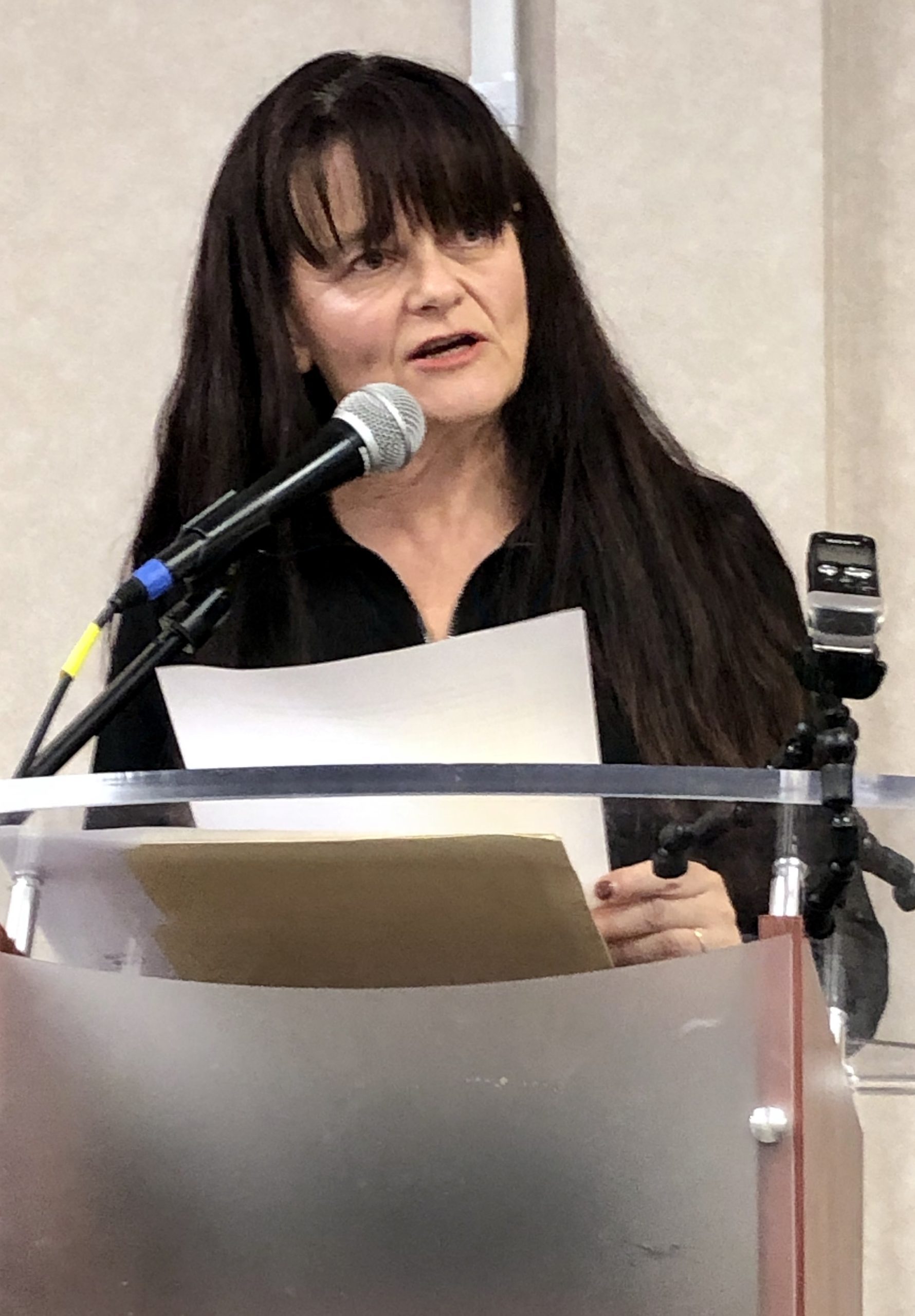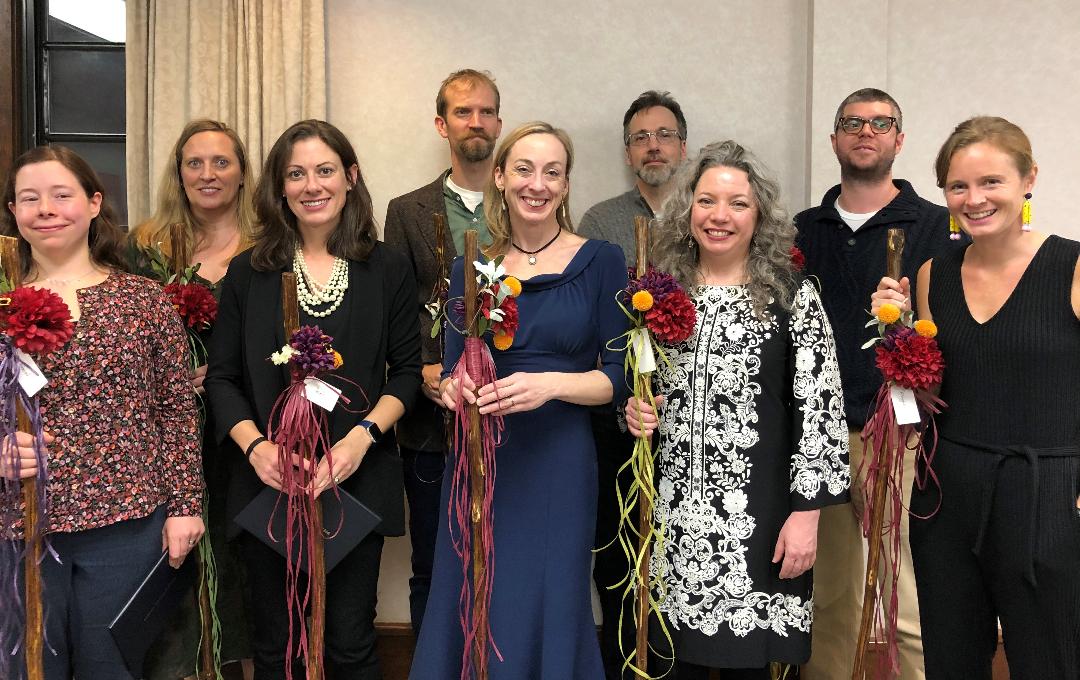 Welcome, graduates! Welcome, friends and family!
Welcome, graduates! Welcome, friends and family!
I am so happy and honored to be here with you this afternoon, and I am beaming each of you whole-hearted congratulations on your degree, which represents years of honoring your practice through drafts imagined and reimagined; through community and correspondence; through absorbing the words and worlds of other writers, at residency and beyond. When I was a graduate student myself, I experienced many moments where I felt overwhelmed by the work ahead of me; at times, I wondered if I was up to the task of being a writer at all. Perhaps some of you have experienced similar restless nights of the soul during your own M.F.A. journeys. Your presence here today is a testament to your commitment to your art; to your ability to persist even when the work turned uncertain; to return to the humble yet profound task of making one mark and then another on the page.
I also want to thank you for the outstanding and generous contributions you have made to this residency—from your absorbing and illuminating classes to your beautiful readings to the conversations generated at your thesis interviews. We have all been privileged to learn from you.
To your beloveds, your partners, your families, and friends, I would like to extend the warmest of welcomes. You, too, are a part—an integral part—of the Warren Wilson community. Thank you for supporting these writers as they vanished into the forests of their own imaginations and thank you for being there for them when they emerged.
Graduates, your achievement would, of course, be cause for praise and celebration at any time, but you did not undertake your final semesters at “any time”; rather you undertook this work in the second half of 2020, amidst an ongoing and escalating pandemic, a national and global uprising in resistance to state-sanctioned racial violence, and an election of powerful consequence. In her novel Lost Children Archive, Valeria Luiselli writes: “I suppose that documenting things—through the lens of a camera, on paper, or with a sound recording device—is really only a way of contributing one more layer, something like soot, to all the things already sedimented in a collective understanding of the world.” Whenever writing has felt, for me, daunting, impossible, or even useless, I have found myself returning, again and again, to Luiselli’s notion of “contributing one more layer”—that to press on with our work in times of grief and terror and rage does not mean to abandon the world for the private sanctuary of the imagination, but rather to use the privacy of the imagination as a conduit for making meaningful contact with the realities we live in and through, with the hope of one day offering our own contribution to the collective understanding.
This graduation marks both an end and a beginning. It marks the conclusion of your time in this program and the start of your post-MFA writing life—the “afterlife,” as I’ve heard Deb call it. While this new phase won’t come with reading lists and packet deadlines and green sheets, you are not undertaking this journey in solitude. The community you have cultivated here—from your former supervisors to your peers to the artistic lineages this program connects us all too—will journey alongside you. To that end, I encourage you to nurture the relationships that have been meaningful during your time in the program. Aristotle described friendship as “A single soul dwelling in two bodies.” Remember those who have evoked that feeling of shared spirit. Write letters! Send Texts! Make phone calls! Nourish the seeds of deep friendship that have been planted during your time in the program, so that you may offer each other sustenance on the road ahead.
As a few of you already know, boxing is, in addition to literature, one of the great loves of my life. And so, with that road ahead in mind, I would like to now share with you a little story about what happened when I sparred for the very first time.
I had been training for some months when I joined a weekly sparring group at my gym, and I had big ideas about all the moves I was going to make once I was in the ring. I would whip out all the tricks I had learned from footwork drills. I would throw all the combos I had practiced on the heavy bag. I would slip and roll, bob and weave. In reality it was all I could do to not get hopelessly trapped on the ropes and to keep my hands up. After one round, I was gasping for breath and both my arms felt like they had been set on fire. It seemed I had forgotten everything I had learned during my training, and, to add insult to injury, apparently I wasn’t in as good a shape as I’d thought I was in, either.
At the end, I was not hurt; I was only exhausted, discouraged, and ashamed.
“How can I get better?” I asked my coach after. “What should I work on?”
He said, “Come back next week.”
Later, it would occur to me that come back next week was perhaps some of the most useful instruction I had ever received as a writer, even if it was not offered in that context. But this is how books get written after all, this is how a life in the arts takes shape—by coming back next week, again and again, until the work is done. And then, when the work is done, we begin anew. Last year, I embarked on a new novel and when I inevitably hit that first stretch of feeling exhausted, discouraged, and ashamed by my lack of progress, I taped come back next week above my desk and, like a little lighthouse, that one sentence continued to guide me.
For me, come back next week has come to mean something more than a physical return to the page; it also speaks to the project of holding within the self a kind of rigorous openness; curiosity; and courage. It means that we keep showing up for our current and future projects with a wiliness to listen to whatever it is they are trying to tell us; we keep showing up for starting over; we keep showing up for ourselves as human beings; we keep showing up for our communities; we keep showing up for honesty in all its forms; we keep showing up for all that we still have left to learn; we keep showing up for the gaps in understanding and accomplishment that we can close gradually, with labor and with time and with greater alertness, and also for the gaps that will remain forever open.
Your time in this program has already taught you how to come back next week. Now you need only continue. Your Warren Wilson family is cheering for you, today and always. We can’t wait to see what you create.
Thank you, graduates, and congratulations.




 As the writer asked to speak at your graduation, I took the assignment very seriously. I analyzed the form of the “graduation address” before I attempted it. I annotated a couple of famous graduation speeches (those of David Foster Wallace, Chimamanda Ngozi Adichie, Mindy Kaling, to name a few), and developed a working definition of its structure, rhetorical purpose, etc. I submitted a few drafts to myself, and, as it is with all writing, I will likely never really feel finished.
As the writer asked to speak at your graduation, I took the assignment very seriously. I analyzed the form of the “graduation address” before I attempted it. I annotated a couple of famous graduation speeches (those of David Foster Wallace, Chimamanda Ngozi Adichie, Mindy Kaling, to name a few), and developed a working definition of its structure, rhetorical purpose, etc. I submitted a few drafts to myself, and, as it is with all writing, I will likely never really feel finished. 
